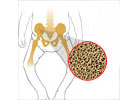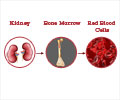In non-cardiac and cardiac surgical procedures, anemia increases operative mortality and morbidity.

In this single-blind randomized study of 600 patients presenting for heart surgery, 300 patients received a single dose of HRE 80,000 UI as a bolus two days prior to surgery and 300 patients served as controls. The results showed that prior administration of HRE reduced transfusion requirements by about one third, from a mean of 1.12 blood units per patient to 0.39 blood units per patient (p<0.001). In the control group, 39% of patients required a transfusion, compared to 17% of those who received HRE. Mean hemoglobin levels on postop day 4 were significantly higher in the HRE group (9.02 vs. 10.21 g/dl, p=0.02). No differences between groups were found for mortality or adverse events.
The HRE protocol also resulted in cost savings, according to Dr. Weltert. Taking into account the costs of HRE, the cost of a blood transfusion (blood and labor costs), and the savings from avoiding blood transfusions, Dr. Weltert found that the HRE protocol was cost-effective.
"HRE therapy remains a viable, yet underused option, a milestone in the 'bloodless story.' In the past its role was predominantly in association with preoperative autologous blood donation, while in the present its role has to be focused on the management of perioperative anemia," says Dr. Weltert.
Source-Eurekalert











